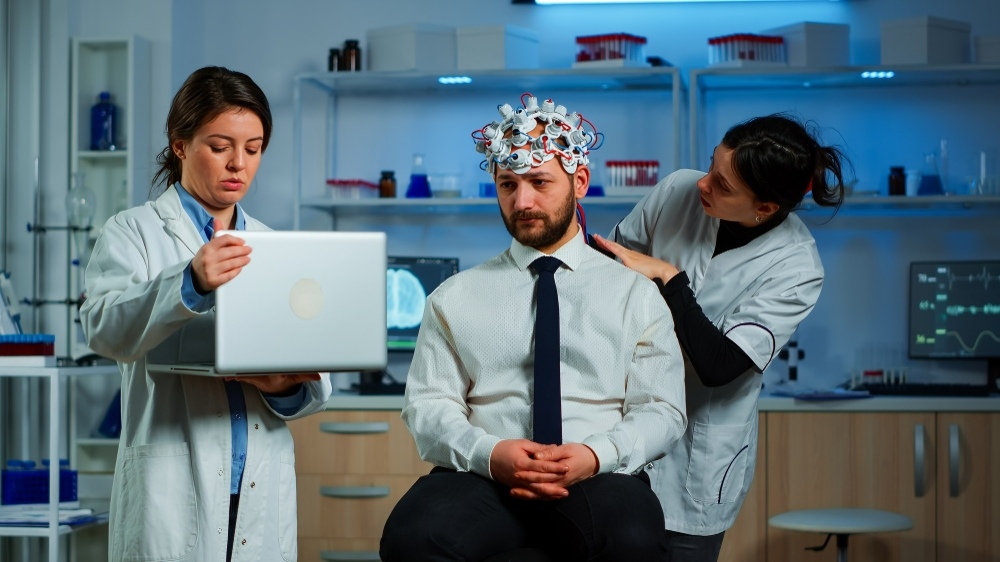Duchenne Muscular Dystrophy (DMD) is more than a medical diagnosis—it is a life-altering condition that impacts not only the individual but their entire family. As an inherited disorder caused by mutations in the DMD gene, understanding its implications is vital. This is where Genetic counselling plays an essential role.
Understanding Duchenne Muscular Dystrophy
Duchenne Muscular Dystrophy is a progressive muscle disorder, primarily affecting boys. It gradually weakens the muscles, usually beginning in early childhood. As the condition progresses, it affects heart and respiratory muscles, leading to significant complications.
What many families may not initially realize is that DMD is genetic. This means it is passed down from parent to child, often through carrier mothers. Knowing your genetic risk, or your child’s, is where Genetic Counseling becomes crucial.
What Is Genetic Counseling?
In the simplest terms, Genetic Counselling is a process that helps individuals and families understand how genetic conditions, such as DMD, can affect them. However, it’s not just about information—it’s about emotional, psychological, and medical guidance through a very challenging journey.
During sessions, a trained genetic counselor will:
-
Review your family history
-
Assess the risk of recurrence in future pregnancies
-
Discuss testing options and results
-
Provide emotional and psychological support
-
Coordinate with medical specialists for a comprehensive care plan
Through this, families can make more informed, confident, and prepared decisions for the future.
Why Genetic Counseling Matters for DMD Families
With Duchenne, Genetic Counseling isn’t optional—it’s essential. Here’s why:
-
Accurate Diagnosis: While clinical symptoms point to DMD, genetic testing confirms the mutation in the DMD gene.
-
Carrier Testing: Mothers, sisters, and other female relatives may unknowingly carry the gene. Identifying carriers is crucial for family planning.
-
Future Family Planning: Counseling enables families to explore options such as pre-implantation genetic diagnosis (PGD) and prenatal testing.
-
Risk Assessment for Siblings: Younger siblings may be asymptomatic carriers or at risk. Early testing helps with proactive medical care.
In this sense, Genetic Counseling becomes not just a resource, but a pillar of support for entire families—now and for generations to come.
What to Expect During Genetic Counseling Sessions
Families sometimes hesitate, unsure of what Genetic Counseling involves. Here’s a breakdown of what to expect:
-
Initial Consultation:
-
Detailed discussion of family medical history
-
Explanation of inheritance patterns
-
Overview of DMD’s genetic basis
-
-
Genetic Testing:
-
Blood or saliva samples collected
-
Sent to specialized labs for mutation analysis
-
-
Result Interpretation:
-
Clear explanation of what the test results mean
-
Identifying carriers and those at risk
-
-
Guidance and Support:
-
Emotional counseling tailored to family dynamics
-
Referrals to medical specialists, like a neurologist or cardiologist
-
Benefits Beyond Diagnosis
Many assume that Genetic Counseling ends with a test result—but that’s just the beginning. The ongoing benefits include:
-
Emotional reassurance for worried parents
-
Clarity in managing expectations and long-term care
-
Empowerment to make confident healthcare and reproductive decisions
-
Ongoing educational resources and support groups
When handled with compassion and expertise, Counseling transforms fear into clarity and uncertainty into action.
Common Misconceptions About Genetic Counseling
Let’s address a few myths:
-
“It’s only for people planning children.”
Not true. It’s also for families managing an existing DMD diagnosis or those unsure about their family’s risk. -
“It’s too expensive.”
In many cases, insurance or healthcare providers may cover it, especially when medically recommended. -
“It’s only about science.”
Emotional and mental well-being is just as central. Counselors are also trained in psychological support.
How Families Can Prepare
Before your first session, it’s helpful to:
-
Gather detailed family health histories
-
Make a list of questions or concerns
-
Be open to emotional conversations
-
Understand that this is a process, not a one-time solution
Families that prepare in advance often find the journey more manageable, insightful, and ultimately empowering.
Conclusion: Where to Seek Help
When dealing with a complex condition like Duchenne Muscular Dystrophy, seeking help from a specialist makes all the difference. For families in the UAE, Dr. Vivek Mundada, a renowned Paediatric neurologist in Dubai, offers not only clinical care but also access to trusted genetic counseling networks. His collaborative approach ensures families receive complete, empathetic care.
Frequently Asked Questions (FAQs)
1. Is Genetic Counseling only for parents who already have a child with DMD?
Not at all. Anyone with a family history of muscular dystrophy or planning to have children can benefit from Counseling. It helps identify risks before symptoms ever appear.
2. Can genetic counseling tell us if future children will have DMD?
While it cannot “guarantee” outcomes, Counseling provides a calculated risk assessment based on genetic testing, offering options like PGD to minimize risks.
3. Is the information from genetic counseling confidential?
Yes. Medical confidentiality policies protect all details shared during Counseling sessions, and only share with your consent.



